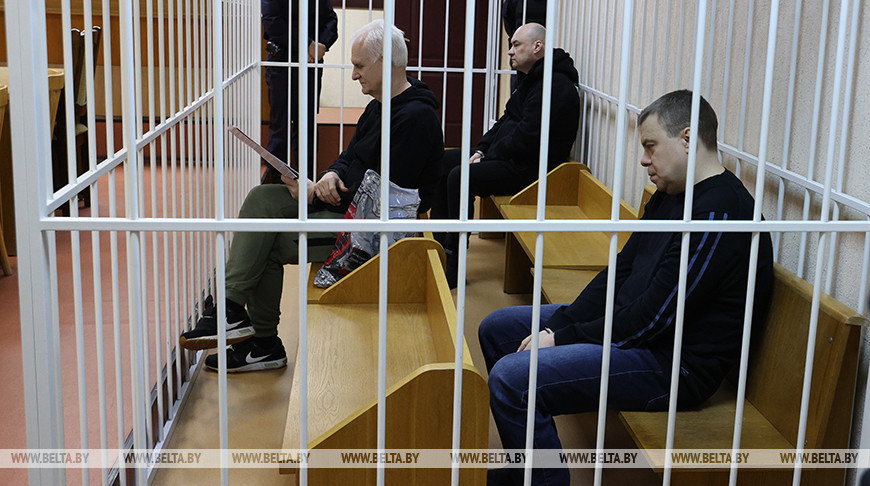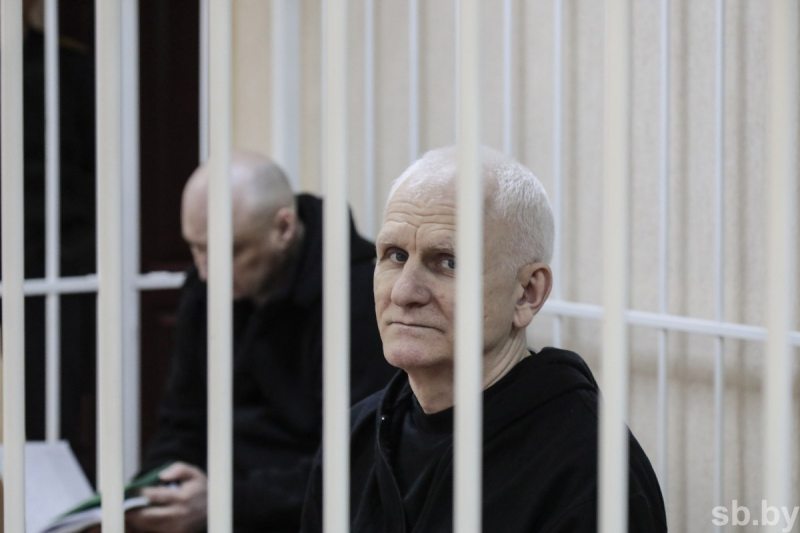All 284 volumes of Viasna case files presented to court
The stage of presenting the written materials of the Viasna case is over with all 284 volumes being introduced in full. Viasna analyzes the structure of case files and our fellow Alena Masliukova comments on the government's hostility towards human rights defenders.

Viasna members on trial: A day-by-day chronology of the court
Most of the Viasna case files are information about the organization's human rights activities from open sources such as Viasna’s website spring96.org, the organization’s social networks, and independent media.
In addition to data on the work of the Viasna head office in Minsk, the case file contains detailed data on the activities of the regional offices in Homieĺ, Brest, and Mahilioŭ.
Along with public data, the materials also contain police surveillance and wiretap data. Main Directorate for Combating Organized Crime and Corruption (GUBOPiK) started to gather operational intelligence in relation to human rights defenders as early as September 2020. Then the security services installed a wiretap on the phone of the Brest branch head Uladzimir Vialichkin. Tapped conversations were read out at the trial. Also, he was placed under surveillance, and a video camera was installed in his office. At the trial, the state prosecutor described the video recordings from the office and announced the content of conversations held there.
Furthermore, GUBOPiK officers listened in on the visiting room in Homieĺ detention center No. 3 while political prisoner Leanid Sudalenka was visited by his wife.
The case files contain numerous Homieĺ Viasna website inspection protocols and the profile of Leanid Sudalenka on prisoners.spring96.org which was read by the prosecutor. It also became known that the investigation had monitored the publications on the Viasna website about the detention of Leanid Sudalenka and even registered the time when the news was highlighted on the website.

- Ales Bialiatski in court, January 2023.
Meanwhile, the Nobel Peace Prize laureate Ales Bialiatski received one reprimand in the pre-trial detention facility. He has been characterized as “needing supervision”.
Alena Masliukova: “The authorities were looking for any components of crime in the activities of the regional branches of Viasna”
Human rights defender Alena Masliukova notes that the criminal file demonstrates the hostile attitude of the state towards human rights defenders.
“We see that the shameful practice of collecting operative intelligence about human rights defenders has persisted in the post-Soviet region. In a rule-of-law state, a court (not even a prosecutor) would not authorize wiretapping or covert surveillance of a person who is engaged in helping people in need.
We can see from the materials of the Viasna criminal case that our colleagues in the southern regions of the country were in demand of people affected by repression. The Homieĺ and Brest regions had the largest popular unrest of any region. The authorities not only cracked down on the protest but started looking for any components of crime in the activities of the regional branches of Viasna, where people streamed for help in August 2020.”


















